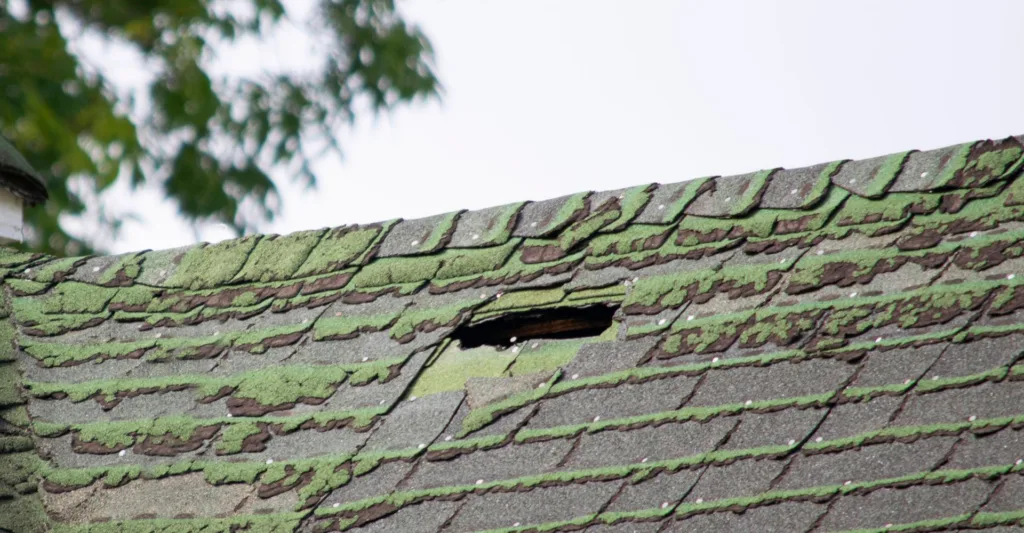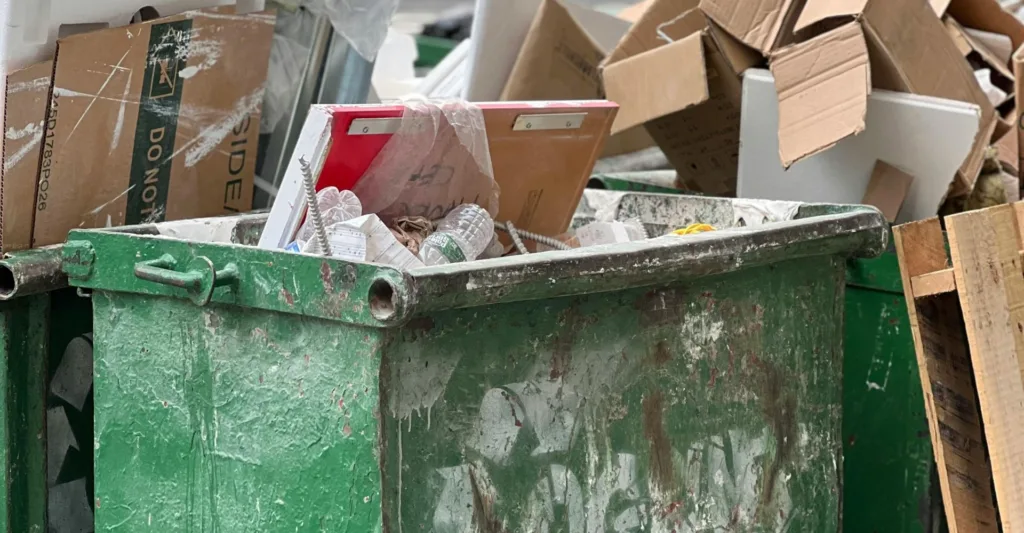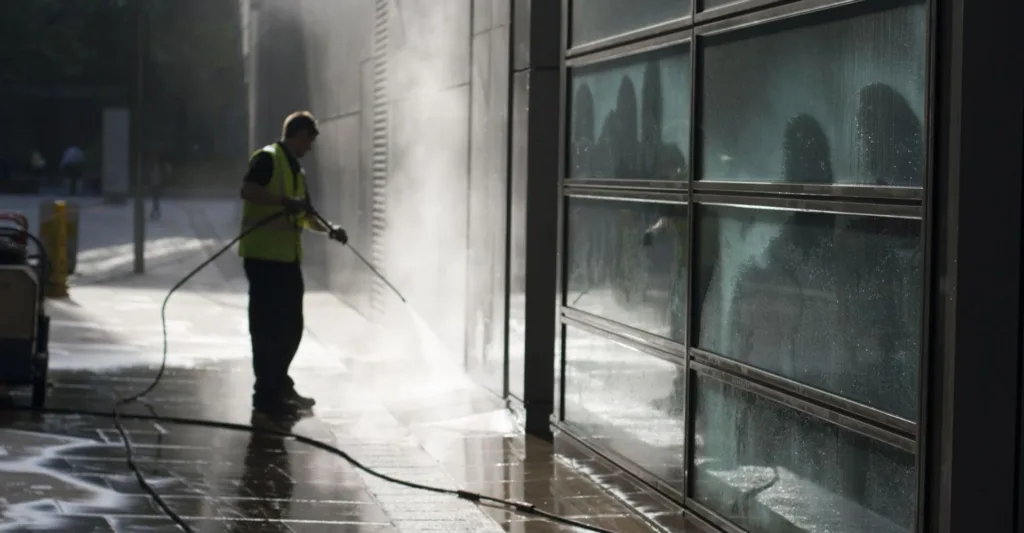The holiday season has peak foot traffic, deliveries, catering, and cozy indoor gatherings.
All of which create ideal conditions for pests to move in and take up residence. For commercial property owners and managers in the Twin Cities, winter pests aren’t just a nuisance: they can endanger employee health, damage inventory, violate health codes, and hurt your reputation at the worst possible time.
This blog will provide a practical, Minnesota-focused guide to get your buildings holiday-ready and pest-resistant.
Why the holiday Season change the pest equation
Two things happen in late fall and early winter around the Minneapolis–St. Paul metro: (1) exterior temperatures drop, pushing rodents and some wildlife to seek warm shelter; and (2) businesses ramp up activity.
Food handling increases, deliveries rise, and temporary storage or decorations create new clutter. This combination increases the risk of pest encounters, which can lead to health-code violations, spoiled inventory, or customer complaints.
For commercial properties, prevention is far cheaper and less disruptive than a reactive extermination.
1. Checking the building with an IPM mindset
Integrated Pest Management (IPM) is the modern, evidence-based approach for preventing and managing pests. IPM prioritizes prevention, monitoring, and targeted interventions over routine, blanket pesticide use. Start by performing a site audit to assess structural vulnerabilities, sanitation, storage practices, and landscaping that could harbor pests. Consider designating a staff member or team to own the IPM checklist before the holidays. What to look for on your audit:
- Exterior gaps around rooflines, loading docks, doors, and utility penetrations.
- Damaged weather stripping or door sweeps on entry points.
- Accumulations of debris, pallets, or cardboard near walls or vents.
- Roofline or attic-entry access used by birds, bats, or squirrels.
- Interior clutter: cardboard boxes, overflow storage, unsealed trash or compost bins.
- Evidence of rodents (droppings, gnaw marks), insect activity, or nesting.
If you’d prefer a licensed inspection, local pest professionals who serve the Twin Cities can conduct a commercial IPM assessment and prepare a prioritized action plan. Abra Kadabra Environmental Services offers commercial and property-management pest services across the metro and can help implement IPM programs tailored to your facility.


2. Seal the building (Big to small gaps)
Rodents can squeeze through openings the size of a quarter; cockroaches and ants only need paper-thin gaps. A targeted exclusion program is one of the most cost-effective ways to prevent incursions.
Quick sealing checklist:
- Install or replace door sweeps on all exterior doors and loading bays.
- Repair torn screens and seal HVAC louvers with fine-mesh screening.
- Use steel wool, wire mesh, or metal flashing to close gaps around pipes, conduits, and vents.
- Inspect rooftop equipment and wall penetrations; seal where possible.
- Keep dumpster and compactor areas clean and fit lids tightly.
Local codes and property-maintenance rules in Minnesota also require that storage areas be maintained to prevent rodent harborage. Keep stacked materials off the ground and away from exterior walls. These small investments limit entry points and make other controls far more effective.


3. Implement Stricter Food Storing Practices
Sanitation is prevention’s best friend. During the holidays, you’ll likely have more deliveries, catering, breakroom traffic, and temporary storage, which means an increase in available food and harborages.
Sanitation priorities:
- Food storage: keep all food (including staff snacks) in sealed, pest-proof containers. Don’t use cardboard for long-term storage of packaged goods.
- Waste management: empty indoor trash frequently, use lined dumpsters, and clean compactor areas regularly. Secure dumpster lids and create a gap-free perimeter to prevent pest nesting.
- Break rooms & kitchens: clean under equipment, empty drip trays, and schedule an extra deep clean before peak events.
- Packaging: flattened boxes should be stored indoors or in sealed areas — cardboard is attractive to rodents and insects.
- Staff training: remind employees not to leave food in work areas overnight, and assign quick daily inspections during holiday shifts.
Foodservice and retail facilities are especially vulnerable; rodent activity in food environments can lead to immediate closures and reputational damage. Regular monitoring and strict sanitation help avoid those worst-case scenarios.


4. Control deliveries, inventory, and seasonal displays
Holiday deliveries create movement. Pallets, crates, and temporary storerooms. These practices create hiding spots and food sources for pests if not managed intentionally.
Best practices:
- Inspect incoming shipments for signs of pests before bringing pallets inside.
- Reject or isolate the infested product and document incidents.
- Maintain a dedicated receiving area that is swept and inspected daily.
- Rotate seasonal merchandise to avoid long-term storage of cardboard near walls.
- For public displays (wreaths, trees, gift boxes), avoid bringing in untreated natural materials that could harbor insects; inspect and store them away from sensitive areas.
Work with suppliers to make pest-free deliveries part of your contract terms — that reduces risk across the chain.


5. Preventative maintenance
Place monitoring stations (e.g., glue boards, rodent bait stations) in strategic, low-visibility areas: behind equipment, in storage rooms, and near loading docks. Monitoring tells you whether you have an early problem that can be resolved quickly, rather than a full infestation that will require major service and downtime.
- Keep a log of monitoring results and service visits.
- Use photographic records for trend analysis (helps when discussing patterns with a pest provider).
Licensed pest management companies can set up a monitoring plan as part of a preventive service agreement. Abra Kadabra offers commercial monitoring and can partner on recurring checks to keep your property holiday-safe.
6. Using Treatments With Compliance in Place
If prevention and monitoring reveal a problem that requires treatment, opt for targeted, professional applications that follow IPM principles and Minnesota regulations. This reduces risks to employees, customers, and the environment while focusing treatment only where necessary.
- Require licensed applicators for pesticide or bait station work in commercial settings.
- Ask for material safety data sheets (SDS) and application plans.
- Schedule treatments during off-hours when possible to minimize disruption.
- Maintain records of treatments as part of your facility’s compliance documentation.
State resources on pesticide use and IPM can help you understand Minnesota’s regulatory requirements and best practices.
7. Special considerations for different property types
- Retail stores: Emphasize clean receiving areas, tight inventory rotation, and regular inspection of display areas.
- Restaurants & cafeterias: Increase frequency of deep cleans, tighten food storage, and use professional kitchen IPM services.
- Warehouses & distribution centers: Keep pallets away from walls, elevate stored items, and seal exterior loading areas.
- Historic or older buildings (common across Minneapolis neighborhoods): Use history-sensitive exclusion and proofing techniques to protect both the structure and collections.
Read this blog for best practices for historic structures if you need a nuanced approach.
What to do if you spot activity during the holidays
- Isolate the area (especially if food is involved).
- Photograph evidence (droppings, gnaw marks, insects).
- Increase sanitation and remove attractants immediately.
- Call your licensed pest provider for an emergency assessment — many companies offer holiday response plans. Abra Kadabra’s commercial teams cover the Twin Cities and can assist quickly if you have an urgent problem.


Educating Your Employees
Your staff are the daily eyes and ears of your property. A short training and a simple reporting flow can mean the difference between catching an issue early and dealing with a full infestation.
Training elements:
- Teach staff what to look for (droppings, grease marks, chewed packaging).
- Establish a single point of contact for reporting.
- Provide a one-page quick guide: clean up spills, secure food, close exterior doors behind you, and report leaks immediately.
- Schedule a brief pre-holiday meeting to reinforce responsibilities.
Why professional partnerships matter in Minnesota
Local pest companies understand seasonal patterns in the Twin Cities. When rodents start moving in, what pests are active around lakes and parks, and how cold weather affects pest behavior. Partnering with a licensed provider who offers commercial IPM, monitoring, and emergency response reduces risk and ensures compliance with state regulations.
Abra Kadabra Environmental Services works with property managers, retail chains, warehouses, and historic sites across the metro to deliver tailored commercial pest programs.
How Abra Kadabra Can Help
Suppose you manage a commercial property in Minneapolis or the surrounding metro area and want a professional, IPM-based assessment or a holiday-readiness plan.
In that case, Abra Kadabra Environmental Services offers commercial inspections, monitoring, and tailored prevention packages across the Twin Cities.
Contact our commercial team to schedule an audit and get a written IPM plan before the holiday rush.
Sources
- EPA — Integrated Pest Management in Buildings (IPM guidance and program template). Environmental Protection Agency
- CDC — Controlling wild rodent infestations; health risks and prevention. CDC
- Minnesota Department of Agriculture — Integrated Pest Management overview and resources. mda.state.mn.us
- Minnesota rules on property maintenance and rodent harborage (storage & housekeeping requirements). Revisor MN
Abra Kadabra Environmental Services — commercial services and property-management solutions for the Twin Cities. Abra Kadabra+1

